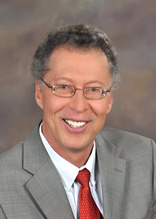Counties in Retreat
A reverse gold rush is actively taking place in South Dakota. Only the gold rush is going in reverse. We will also call it a retreat. The retreat is moving at a good clip. This year three counties are likely to repeal existing county surface water drainage ordinances. This is a grand mistake. Such a repeal is an action motivated by fear rather than thoughtfulness. Surface water drainage issues will not go away just because a county commission wants the issues to go away.
I am sad to report, on information and belief, that several State’s Attorneys support this legal retreat. I am also sad to report that at the recent 2020 Annual Meeting of the South Dakota County Commissioners a Minnesota attorney was invited to comment on county drainage ordinances, and the attorney’s comments apparently added fuel to the fire for putting the vehicle into a fast reverse. I am told the attorney opined that existing county ordinances are flawed. On the opinion that some county ordinances are flawed, I have no fight. Drainage ordinances across the state run the gamut from good to bad. However, with the idea that a full platoon retreat is called for – I find the act foolish. I have been on both sides of the equation. I have advocated and promoted development projects, and I have opposed projects. Such is the natural conflict in a democratic society — as long as there are some rules.
Drainage ordinances manage the conditions under which a landowner may direct or force water drainage onto another party’s land. This is an important natural resource issue. The issue will not go away by creating darkness and silence. Surface water drainage and water runoff is a natural issue in the Great Plains. It always will be. The flow of water whether natural or artificial affects more than the drainage project developer within any given county. It affects upstream property, downstream property and property owners who may not even be abutting the project.
Surface water drainage ordinances are just as essential to a county as mining and natural resource development ordinances. With changes and challenges over time county mining ordinances in the state have longstanding acceptance as a modern part of natural resources management. Lawrence County by way of illustration has a zoning ordinance dealing with mining operations. The ordinance involves planning and zoning as well as the granting or denial of conditional use permits. The ordinance language is not perfect, not always popular, but such natural resource regulation has been accepted by the residents of the county for some time now. The ordinance language was established to promote the health, safety and general welfare of the county. Mining regulations by a county, along with county drainage ordinances, are supported by law provided ordinance language does not frustrate the purpose of state or federal laws.
Repealing surface drainage ordinances is leadership abdication by county commissioners. It is human nature that when unshackled, man will exploit a vacuum where rules are absent. Neighbor vs. neighbor disputes over surface drainage issues have been a mainstay of expensive litigation in South Dakota for residents of the state at least as far back as the Quinn vs Chicago, Milwaukee case of 1909.
I here provide an analogy comparing drainage regulations to traffic regulations. State managed roads have traffic signs and rules of the road. City managed streets have traffic signs and rules of the road. But if no local regulations are established by a county, county roads would be unregulated, have no traffic signs and no county-created rules of the road. In the world of surface water management certain county commissioners prefer that neighbors duke it out against each other, that is: neighbor vs. neighbor or neighborhood – preferably before the Judge. Commissioners who have failed to adopt countywide drainage regulation or who have anxiously repealed existing regulations are refusing to use their local expertise and failing to use their knowledge of the local geology and geography of the county to the long term detriment of county residents. This is most particularly true where the state law of South Dakota gives counties the legal authority to exercise home rule. As canny politicians, certain recalcitrant county commissioners prefer good publicity and pats on the back to the protection for residents afforded by local rules affecting local property rights and local property owners. Counties that waive the legal right to create drainage ordinances are waiving their right to home rule.




